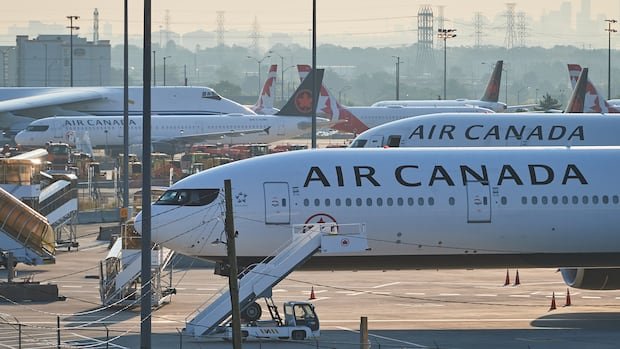Air Canada announced on Thursday that it will be reducing a number of non-union management positions. Vice-president of corporate communications, Christophe Hennebelle, stated that the decision to cut some positions was reached after a thorough review. Hennebelle emphasized that the airline regularly assesses its resources and processes to ensure optimal support for business operations and customers.
Approximately one percent of Air Canada’s total staff, which amounts to about 400 people, will be affected by these reductions. Hennebelle did not provide details on whether the positions would be eliminated through attrition or by leaving vacant roles unfilled. However, he assured that these cuts will not impact the airline’s day-to-day operations.
On the same day as the job cuts announcement, Air Canada revealed plans to expand its services from Toronto’s Billy Bishop airport. The expansion includes 10 new daily flights to four U.S. destinations – New York, Boston, Chicago, and Washington, D.C. – along with two additional flights to Ottawa and one to Montreal. The U.S. flights are scheduled to commence in the spring, while the new trips to Montreal and Ottawa will start in January.
Mark Galardo, Air Canada’s executive vice-president and chief commercial officer, described this expansion as the most significant at Toronto Island since the airline first began serving the airport 35 years ago. The introduction of these new routes intensifies the competition between Air Canada and Porter Airlines, with Porter currently operating out of Billy Bishop and servicing the same U.S. cities.
The majority of Air Canada’s domestic and international flights operate from Toronto’s Pearson airport. The airline is set to release its third-quarter results on November 5. In a previous estimate, Air Canada reported a two percent decline in operating capacity compared to the same period last year due to over 3,200 flight cancellations in August, following a strike by unionized flight attendants.
The strike occurred on August 16, leading to flight disruptions until August 19 when a tentative agreement was reached between the airline and the Canadian Union of Public Employees (CUPE), representing the flight attendants. Despite rejecting the airline’s wage offer, CUPE later agreed to proceed to binding arbitration with Air Canada.
The strike had a significant financial impact of $375 million on Air Canada’s operating income. Additionally, the airline, along with others, has experienced a decrease in travel to the U.S. due to President Donald Trump’s trade policies, resulting in adjustments to flight schedules for U.S.-bound flights. Data from Statistics Canada in September showed a 27.1 percent decline in Canadian residents returning from the U.S. by air compared to the same period last year.


